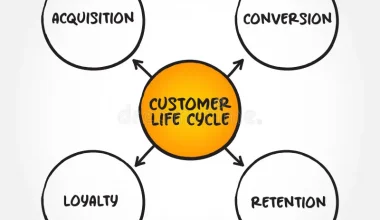A company is only as good as its personnel. They are the backbones that allow daily operations to take place. However, understanding employee strengths in order to attain organizational goals and objectives is crucial.
A varied workforce is made up of individuals who each have their own set of skills and competencies that define their capacity to complete the tasks at hand. To grow employees’ activities, you must first grasp their strengths and weaknesses as a manager. The primary goal should be to evaluate staff on a regular basis in order to direct the firm toward long-term success.
This post will go over the examples of employee strengths that any outstanding leader should be on the lookout for.
What are the Employee Strengths?
Employee strengths are the distinct skills, abilities, and characteristics that each employee offers to the company. These strengths can range from strong communication skills to a talent for problem-solving.
When a company focuses on finding and leveraging each employee’s unique strengths, it generates a work atmosphere that promotes growth, productivity, and creativity.
A corporation may establish a diversified and well-rounded team that is better suited to handle problems and adapt to change by recognizing and leveraging employee strengths. It also fosters a pleasant and supportive workplace culture in which employees feel valued and empowered.
Employees who understand their own strengths and weaknesses can learn from their mistakes and broaden their skill set to become experts in their profession. These employees have the potential to develop into great leaders who can help the next generation become a great workforce.
10 Employee Strengths That Employers Search For
Employees who can successfully use their skills to boost their efficiency and performance levels will be able to meet their performance goals more rapidly. Here are some of the most popular employee strengths that employers seek:
#1. Work morale
A good work ethic usually suggests that you are determined, committed, and dedicated to your task. Individuals with a high work ethic are usually concerned with their performance and want to establish a pleasant work environment that allows them to flourish in any employment capacity. As an employee with a strong work ethic, you may help the company’s ideals and goals by doing your job well.
#2. Flexibility
Flexible employees can readily adjust to workplace changes. When challenges arise, having flexibility can help to reduce stress and boost confidence. You can also learn new skills and methodologies while maintaining a positive mindset. You can be a leader or a role model for others if you are a flexible employee. Having this strength increases your productivity by allowing you to take on more obligations and handle them well.
#3. Organizational Skills
The capacity to organize and manage your time and space is a skill that allows you to prioritize work, meet deadlines, and handle activities and projects successfully. It displays to companies that you can manage your workload and complete assignments on schedule as a primary ability. Planning and organization entail precisely calculating project completion times and prioritizing tasks to ensure timely delivery.
#4. Communication Skills
On the job, you may communicate with a variety of professionals, clients, and teammates via email, in person, or chat. To engage effectively, it is necessary to have great communication skills. You can avoid uncertainty and misunderstandings by communicating in a clear, succinct, and effective manner. Strong communication skills, for example, allow you to write an email to a client while ensuring that the content has a suitable tone and is relevant.
#5. Pay close attention to the details
The capacity to concentrate on minute and basic aspects while doing a task is referred to as attention to detail. Individuals with this skill typically generate consistent work with high accuracy. They are usually very efficient and good at researching. Developing the capacity to be detail-oriented allows you to concentrate on minor aspects of the project, which may help you increase your reliability and performance.
#6. Trustworthiness
Employee reliability is typically high when it comes to trustworthy employees. As a dependable employee, you frequently accept responsibility for your actions and apologize when mistakes are made. You are free to communicate confidential information without supervision. Employers admire reliable employees because they work independently and set a good example for their coworkers.
#7. Problem-solving Skills
Typically, problem-solving entails identifying the issue and devising a solution to remedy it. Understanding frequent workplace difficulties might help you improve your problem-solving skills. By addressing problems on time, you can save both time and money for the department and the firm.
#8. Emotional intelligence skill
Employees who are emotionally aware are typically conscious of how the emotions of their coworkers may be impacted by their actions. You may be compassionate towards others if you are emotionally intelligent. Employees with high emotional intelligence are frequently aware of their colleagues’ body language and other emotional cues. You can improve your connections with others by demonstrating empathy and being supportive of those around you. You can also help others create healthy relationships by demonstrating empathy and being supportive of those around you.
#9. Teamwork skills
Employees that appreciate cooperation and collaboration frequently work well with coworkers and in groups. If you enjoy working with others, you could take on a leadership role in your group. You may prioritize your work while also ensuring that your teammates execute their allocated assignments. You can also help the workplace by focusing on the general performance of the department or project, as well as your own roles and obligations.
#10. Self-motivation
Self-motivation is the capacity that allows an employee to take the initiative and action necessary to pursue goals and complete tasks. Self-motivated people are frequently self-disciplined. It is a necessary talent to have at work since it allows you to stay focused on your task and produce high-quality work. Employers admire self-motivated individuals because they require less monitoring or reminders to complete their tasks.
Examples of Employee Strengths in Sales
Being a great salesperson, regardless of the product, necessitates a set of skills.
Here are six examples of key sales skills and employee strengths.
#1. Organization
Salespeople must stay organized when it comes to meetings with prospects and clients, staying on top of each client’s changing demands, following up with prospects and customers, meeting targets or quotas, and staying on top of deadlines or budget limitations.
#2. Confidence
Salespeople must be confident, not only in themselves but also in the product or service they represent. Sales representatives must also be confident enough to confront rejection without becoming agitated or discouraged.
#3. Friendliness
Having a nice, pleasant attitude is vital when communicating with consumers and clients, especially when the end aim is to offer a product or service.
#4. Proactivity
Team members must be task-oriented and self-motivated, willing to go above and beyond.
#5. Motivation
Sales representatives must regularly achieve quotas and targets, which necessitates a strong feeling of motivation to succeed in the profession on a consistent basis.
#6. Closing and pitching
Making pitches and closing sales, which some people find easier than others, are two crucial skills for success in any sales profession.
Examples of Employee Strengths For Customer Success (CS)
Every member of your customer success team, from your VP of customer success to your customer success analyst, director, and operations manager, requires specific strengths to flourish in their function. Six examples follow.
- Empathy: Customer success professionals must consistently listen to and support consumers and clients.
- Patience: We’ve all heard the expression “Patience is a virtue,” but in business, it’s a strength, especially after a misunderstanding or when a customer is dissatisfied.
- Attentiveness: Attentive employees are a valuable asset to your customer success team because they excel at making clients feel as though their requirements are your top priority.
- Communication skills: Interaction with consumers and clients is fundamental to CS roles. To recognize customer needs, answer inquiries, and handle or escalate problems, CS workers must have great communication skills.
- Problem-solving skills: Customer success representatives are routinely called with problems, complaints, and questions. They must be quick-thinking problem solvers who can assist and support consumers in a variety of situations.
- Multitasking skills: Customer success teams must balance several clients, projects, and deadlines, therefore multitasking is vital.
Examples of Employee Weaknesses
Identifying an employee’s weaknesses is equally as important as identifying their strengths. Once you’ve identified your weaknesses, you can correct them through direct feedback, training software, and other methods.
Employers should be aware of the following six examples of employee weaknesses.
- Disorganization: This does not simply imply having a cluttered desk; disorganization can lead to severe errors and oversights, as well as cause team members to waste time on unneeded, redundant activities.
- Impatience: Some consumers and customers may want extensive assistance with your product or service. In other circumstances, such as supply chain concerns, hurdles will occur that will slow down your operations. Whatever the situation, your team members must be patient, level-headed, and strategic.
- Lack of motivation: Unmotivated and disengaged individuals may fail to absorb information, solve problems, or be productive team members.
- Lack of self-assurance: In business, confidence communicates to customers and clients that your brand is trustworthy. Employees that lack confidence are less inclined to confront issues, express concerns, or seek feedback.
- Lack of communication skills: Ineffective communication might jeopardize your organization’s efficiency and output. Miscommunication causes delays, increases the likelihood of conflict, and increases everyone’s workload, which is why excellent verbal and written communication is such an important skill to look for.
How To Recognize Your Strengths
Here are some methods you may take to uncover your employee strengths:
#1. Examine your work responsibilities.
Reviewing your job tasks is the first step in finding your strengths. Consider your daily, weekly, or monthly job obligations and select at least three strengths relevant to your work performance.
#2. Think about your weaknesses.
The next step is to recognize your weaknesses. You can focus on the traits you already have by emphasizing opportunities for improvement. Consider specific employment tasks that take you longer to complete or places where you are more likely to make mistakes.
#3. Determine your personality type.
Identifying your personality type might also help you determine your workplace strengths. Take online questionnaires or personality tests to learn more about how your personality type influences your strengths.
For instance, suppose you decide to take an online personality test to determine your strengths and weaknesses. You learn that your personality type is ESTP, which indicates that you are an extroverted, sensing, thinking, and perceiving person. You can define your strengths as verbal communication, emotional awareness, problem-solving, and optimism based on this.
#4. Make a list of your personal strengths.
Making a list of your strengths might help you remember your employable qualities. Your list of strengths can be divided into three categories: knowledge-based skills, personality qualities, and interpersonal skills. Consider how your personality and qualifications apply to the job, and you’ll be able to develop a complete list from which to determine your most valuable strengths.
As an example, suppose you decide to build a list. You divide your talent areas into three categories:
Skills that are knowledge-based
- Microsoft Word
- software systems for computers
- cross-selling and upselling
- statistics
Personality traits
- extroverted
- analytical
- positive
- empathetic
- Interpersonal skills
- communication through speech
- problem-solving
- optimism
- empathetic intelligence
Guidelines for Emphasizing Your Strengths During the Job Application Process
Here are some ideas for emphasizing your strengths when applying for a job:
#1. Putting your strengths on your resume
A section about your skills and competencies is usually included on your resume. Mention how your past positions benefited from your skills. For example, explain how your social media marketing idea enhanced your company’s social media traffic and brought in quality leads. You may validate these accomplishments by using numerical measures such as lead counts and traffic percentage increases.
#2. Highlighting your strengths in your cover letter
Your cover letter, like your resume, describes and establishes your skills and competencies. The cover letter allows you to elaborate on the strengths listed in your CV. In your cover letter, for example, you could emphasize talent by saying, “I am an excellent communicator and always consider the comfort of others around me while engaging in discussion.”
#3. Personal interview
An in-person interview allows you to demonstrate your strengths in person. You may dramatically boost your chances of being recruited by demonstrating the strengths that companies seek. You can demonstrate your communication skills, for example, by speaking clearly, maintaining eye contact, and responding appropriately to the interviewer’s body language.
How Can Managers Assist Employees in Discovering and Developing Their Strengths?
Once you’ve discovered your employees’ strengths, the next step is to work hard to cultivate them. Here’s how to go about it:
#1. Share it with them.
Managers frequently believe that employees are aware of their own strengths. Please do not make that error. You’d be shocked at how often your employees take their own strengths for granted and never appreciate them.
Whether it’s simple praise or a one-on-one conversation, call out your employees’ talents and underline their core abilities.
#2. Assign appropriate roles
Assigning work, projects, and positions that are a good fit for an employee’s strengths can boost job satisfaction and performance.
For example, positive and diplomatic employee pairs can be placed with individuals who are more difficult to deal with. Those with strong problem-solving and knowledge-based skills may be well-suited to handle client concerns.
#3. Spend money on training and development.
Investing in employee training and development is an effective strategy to boost their skills and expertise. Making training courses in teamwork, leadership, finance, and communication available to employees can help them advance in their professions and improve their overall capabilities.
This investment, whether given internally or by a third-party supplier, can result in a more knowledgeable and contented workforce, which benefits the organization as a whole. It serves as a learning opportunity for employees, allowing them to focus on their areas of weakness and build stronger skills that will help them climb the success ladder.
Conclusion
It is critical to understand an employee’s strengths in order to decide if they are a good fit for your firm. Their duties and responsibilities will be determined by their skills, knowledge, and ability to collaborate well with others.
During job interviews, you may establish whether an applicant possesses the necessary interpersonal and people skills to guarantee that you hire the correct individual.
Reaching your goals and objectives becomes easier over time when you have people who can bring out the best in themselves and leverage their strengths at work.
- LEADERSHIP STRENGTHS: The Greatest Strengths in 2023 (Updated)
- Personal SWOT Analysis: What It Is and How to Write It (with Examples)
- EMPLOYEE ENGAGEMENT IDEAS: Working Ideas, Games & Improvement
- Competitive Analysis: Meaning, How to Write One, and Examples
- ENGAGEMENT IDEAS: 15 Unique Free Tips






